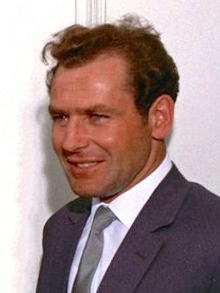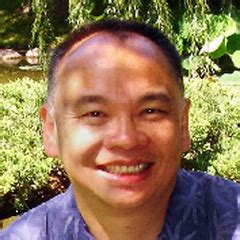A Quote by Henri Nouwen
Jesus was a revolutionary, who did not become an extremist, since he did not offer an ideology, but Himself. He was also a mystic, who did not use his intimate relationship with God to avoid the social evils of his time, but shocked his milieu to the point of being executed as a rebel. In this sense he also remains for nuclear man the way to liberation and freedom.
Quote Topics
Related Quotes
Seminary also introduced me to the historical study of Jesus and Christian origins. I learned from my professors and the readings they assigned that Jesus almost certainly was not born of a virgin, did not think of himself as the Son of God, and did not see his purpose as dying for the sins of the world. .. I also found the claim that Jesus and Christianity were the only way of salvation to be troublesome.
The individual man, in introspecting the fact of his own consciousness, also discovers the primordial natural fact of his freedom: his freedom to choose, his freedom to use or not use his reason about any given subject. In short, the natural fact of his "free will." He also discovers the natural fact of his mind's command over his body and its actions: that is, of his natural ownership over his self.
The point is not that the resurrection is the price paid for our sins. The point point is that the resurrection proves the death of Jesus is an all-sufficient price. If Jesus did not rise from the dead, then his death was a failure, God did not vindicate his sin-bearing achievement, and we are still in our sins.
Our Lord did not want to remain on earth only through His grace, His truth or His words; He remains in person. We possess the same Lord Jesus Christ Who lived in Judea, although under a different form of life. He has put on a sacramental garment, but He does not cease being Jesus, the Son of God and the Son of Mary.
At this time there was a wise man who was called Jesus. And his conduct was good, and [he] was known to be virtuous. And many people from among the Jews and the other nations became his disciples. Pilate condemned him to be crucified and to die. And those who had become his disciples did not abandon his discipleship.
His head was swimming, and he was far from certain even of the direction they had been going in when he had his fall. He guessed as well as he could, and crawled along for a good way, till suddenly his hand met what felt like a tiny ring of cold metal lying on the floor of the tunnel. It was a turning point in his career, but he did not know it. He put the ring in his pocket almost without thinking; certainly it did not seem of any particular use at the moment.
At that instant he knew that all his doubts, even the impossibility of believing with his reason, of which he was aware in himself, did not in the least hinder his turning to God. All of that now floated out of his soul like dust. To whom was he to turn if not to Him in whose hands he felt himself, his soul, and his love?
Nuclear man is the man who realizes that his creative powers hold the potential for self-destruction. He sees that in this nuclear age vast new industrial complexes enable man to produce in one hour that which he labored over for years in the past, but he also realizes that these same industries have disturbed the ecological balance and, through air and noise pollution, have contaminated his own milieu.
"Freedom" is probably the word he said more than any other. He used the word freedom constantly. I think for some his frequent calls for freedom became a cliché because he did it so often. They didn't get it, but Reagan certainly did. He thought deeply about the relationship between God and human freedom and the nonrelationship between atheistic communism and that freedom.



































